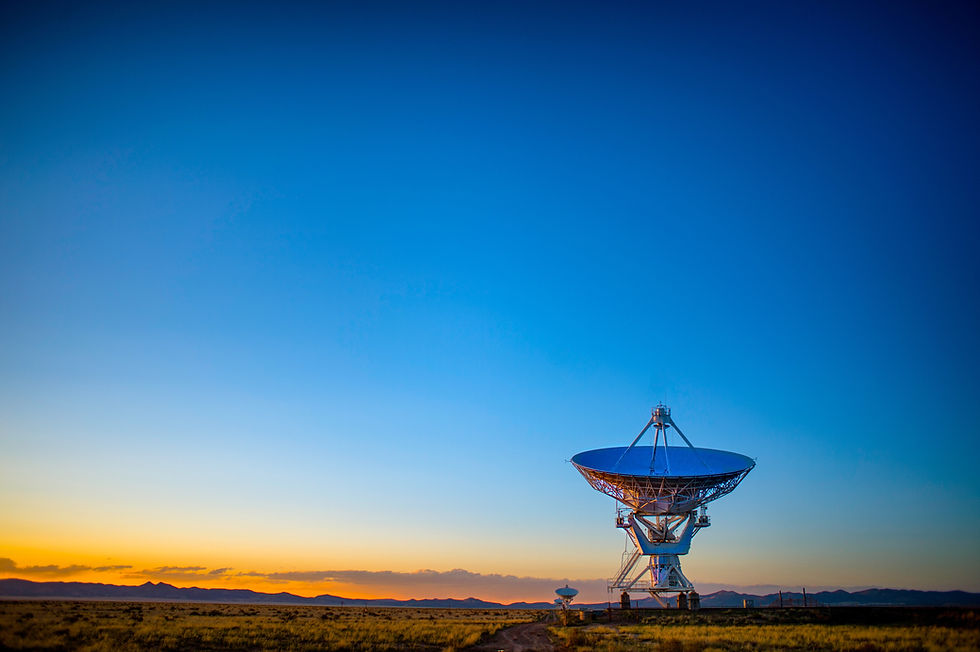
As we continue to navigate through the 21st century, technology has become an integral part of our everyday lives. It's impossible to imagine a world without the internet, smartphones, and all the advancements that have made our lives more convenient and efficient. In this blog post, we'll delve into the top 5 technology trends shaping our world, from generative AI to the Internet of Things. So, grab a cup of coffee, sit back, and let's explore the fascinating world of emerging technologies.
1. Generative AI: Enhancing Our Capabilities
Artificial intelligence (AI) has been around for decades, but recent advancements in machine learning and deep learning have led to the emergence of a new AI paradigm: generative AI. Generative AI, like OpenAI's GPT series, can create new content, such as images, texts, music, and more, by learning from existing data sources (1). These AI systems have the potential to revolutionize industries such as entertainment, design, and marketing by enhancing our creative capabilities, automating mundane tasks, and offering new ways to solve complex problems.
2. Connected Sensors and the Internet of Things (IoT)
The Internet of Things (IoT) refers to the network of interconnected devices, sensors, and objects that can communicate with one another to collect and exchange data (2). The global IoT market is projected to reach $1.3 trillion by 2026, driven by the proliferation of connected devices, faster and more reliable internet connections, and advances in data analytics (3). IoT has the potential to transform industries such as agriculture, healthcare, transportation, and smart cities by providing real-time data and insights, enabling more efficient decision-making, and enhancing overall operational efficiency.
3. Blockchain and Smart Contracts: Simplifying Business Connections and Consumer Information Verification
Blockchain technology, the underlying technology behind cryptocurrencies like Bitcoin, has evolved to offer numerous applications beyond digital currency. One such application is smart contracts, which are self-executing agreements with the terms of the contract directly written into code (4). These contracts automatically execute when the predefined conditions are met, eliminating the need for intermediaries and reducing the potential for disputes or fraud. Smart contracts have the potential to revolutionize various industries, such as supply chain management, real estate, and finance, by streamlining business processes and improving transparency and security (5). They also empower consumers by allowing them to verify information and track the provenance of products, increasing trust and accountability in the digital world.
4. Next Frontiers in IoT: Edge Computing and 5G
As the number of connected devices continues to grow, the demand for more efficient data processing and faster internet speeds increases. Edge computing and 5G are two technologies that will help meet this demand by enabling more efficient data processing and faster, more reliable connectivity. Edge computing refers to the processing of data closer to the source, rather than relying on centralized data centers (6). This approach reduces latency, improves efficiency, and allows for real-time data processing, which is crucial for applications like autonomous vehicles and remote healthcare monitoring.
5G, the fifth generation of mobile networks, promises to deliver faster speeds, lower latency, and more reliable connections than its predecessors (7). As 5G networks continue to roll out worldwide, we can expect to see an explosion in IoT applications and services, creating new opportunities and challenges for businesses, governments, and consumers alike.
5. The Convergence of Technologies
What makes these technology trends particularly exciting is their potential to converge and create new opportunities and innovations. For instance, the combination of IoT, edge computing, and 5G can enable truly smart cities that can monitor and manage traffic, energy consumption, and waste management in real-time. Similarly, the integration of generative AI and blockchain can pave the way for more secure, efficient, and personalized customer experiences across industries.
As these technologies continue to advance and interact, we can expect to see a wave of new products and services that were once the stuff of science fiction. From autonomous vehicles and drone deliveries to virtual reality and personalized healthcare, the possibilities are virtually endless.
Conclusion
The future of technology is both exciting and unpredictable, but one thing is for sure: it will continue to shape our world in ways we can't even imagine yet. By staying informed about these emerging trends, we can better prepare ourselves for the opportunities and challenges they present. Whether you're an entrepreneur, an industry professional, or just someone who loves to stay on the cutting edge of innovation, understanding these trends can help you navigate the ever-changing landscape of technology and make informed decisions about your career, your business, and your life.
So, as you finish your morning coffee and step into the day, remember to keep an eye on these top 5 trends shaping our world. They may very well be the keys to unlocking a brighter, more efficient, and more connected future for us all.
References
Radford, A., et al. (2021). "Language Models are Few-Shot Learners." OpenAI. https://arxiv.org/abs/2005.14165
Gubbi, J., et al. (2013). "Internet of Things (IoT): A vision, architectural elements, and future directions." Future Generation Computer Systems, 29(7), 1645-1660. https://doi.org/10.1016/j.future.2013.01.010
Allied Market Research. (2021). "Internet of Things (IoT) Market by Component, Technology, and End User: Global Opportunity Analysis and Industry Forecast, 2021-2030." https://www.alliedmarketresearch.com/internet-of-things-iot-market
Szabo, N. (1997). "Formalizing and Securing Relationships on Public Networks." First Monday, 2(9). https://doi.org/10.5210/fm.v2i9.548
Tapscott, D., & Tapscott, A. (2016). "Blockchain Revolution: How the Technology Behind Bitcoin Is Changing Money, Business, and the World." Penguin.
Shi, W., et al. (2016). "Edge Computing: Vision and Challenges." IEEE Internet of Things Journal, 3(5), 637-646. https://doi.org/10.1109/JIOT.2016.2579198
Andrews, J.G., et al. (2014). "What Will 5G Be?" IEEE Journal on Selected Areas in Communications, 32(6), 1065-1082. https://doi.org/10.1109/JSAC.2014.2328098
Disclosure: I wrote this blog article with my trusted assistant's help, ChatGPT-4.

Comments